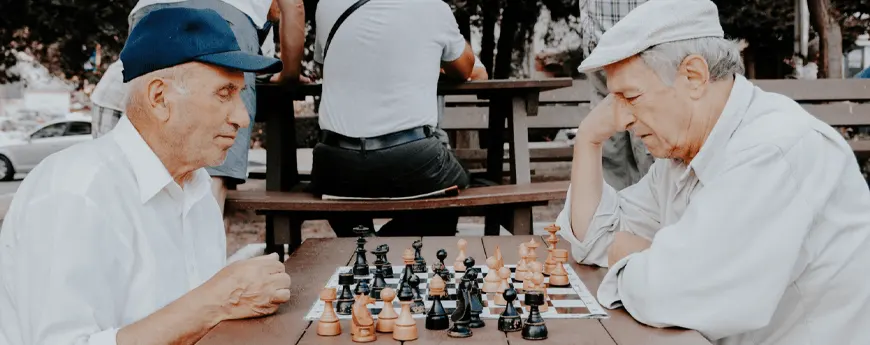Understanding Cognitive Decline: How Your Brain Changes as You Age
Our bodies undergo many changes as we age, and the brain is no exception. Normal brain aging is accompanied by changes in its function and structure, which can affect cognitive performance. In this article, find out how the brain changes with age and other interesting aspects associated with it.
Understanding the Aging Brain
When the brain ages, it goes through several changes that affect cognitive function. Research has shown that certain brain regions shrink with age, specifically the prefrontal cortex and hippocampus, both of which play crucial roles in memory and cognitive processes. This structural reduction may explain some age-related declines in memory and learning abilities.
Furthermore, aging decreases the production of certain neurotransmitters, such as dopamine and serotonin, vital for communication between brain cells. As a result, it affects mood regulation and cognitive functions, including attention and concentration.
Aside from these structural and chemical changes, functional alterations also occur in the aging brain. Studies have demonstrated that older adults often exhibit increased brain activation compared to younger individuals during cognitive tasks. This heightened activation suggests the aging brain may use additional neural resources to sustain cognitive performance.
Impact on Cognitive Abilities
The changes occurring in the aging brain can enormously impact cognitive abilities. For example, episodic memory tends to decline with age. This ability allows you to recall specific experiences or events. The hippocampus is a key region for memory formation. Experts thought the shrinkage of this brain area caused diminishing memory ability.
Furthermore, attention span and processing speed may decrease as people age. The brain's ability to remain focused and rapidly process information becomes compromised, resulting in slower response times and reduced vigilance. This effect can become apparent in everyday activities, such as multitasking or challenges to adapt to new situations.
Language and verbal fluency may also be affected by normal brain aging. While vocabulary and general knowledge tend to remain intact, word-finding difficulties and a decline in fluidity during conversations may arise.
Maintaining Brain Health
While brain aging is an inevitable part of life, there are strategies you can adopt to support brain health and delay cognitive decline. Regular physical activity can positively impact brain function and mental performance. Exercise increases blood flow to the brain, stimulates the release of beneficial neurochemicals, and improves brain plasticity.
In addition, a wholesome diet rich in vegetables, fruits, whole grains, and omega-3 fatty acids supports brain health. The nutrients from foods provide antioxidants and anti-inflammatory compounds that help protect brain cells and keep up with their proper functioning.
Finally, staying mentally and socially active is another recommendation that positively affects the brain. Engaging in mentally stimulating activities, such as doing puzzles, reading, and learning new skills, can help preserve cognitive abilities. Social interactions and maintaining a strong support network have been linked to better cognitive outcomes in older adults.
Good Brain Health Can Improve Seniors’ Quality of Life
Understanding how your brain changes with age is essential to promote brain health and address cognitive decline. While some changes are anticipated, incorporating a proactive approach to brain health through lifestyle modifications can preserve cognitive abilities for as long as possible. A positive lifestyle can also enhance well-being as you navigate through the aging process.
Syed has years of experience dealing with people, understanding their needs, and helping them find solutions to their problems.
As a Certified Senior Advisor (CSA), Certified Dementia Practitioner (CDP), Certified Montessori Dementia Care Professional (CMDCP), Syed is committed to working closely with Senior and their family knowing what is it like for individuals facing a challenging time, at times groping in dark trying to figure what is the appropriate next step or care level for their unique situation.
Syed and Senex Memory Advisors are fully committed to working closely with families in creating a personalized, step-by-step process memory care plan at zero cost.





Leave a comment